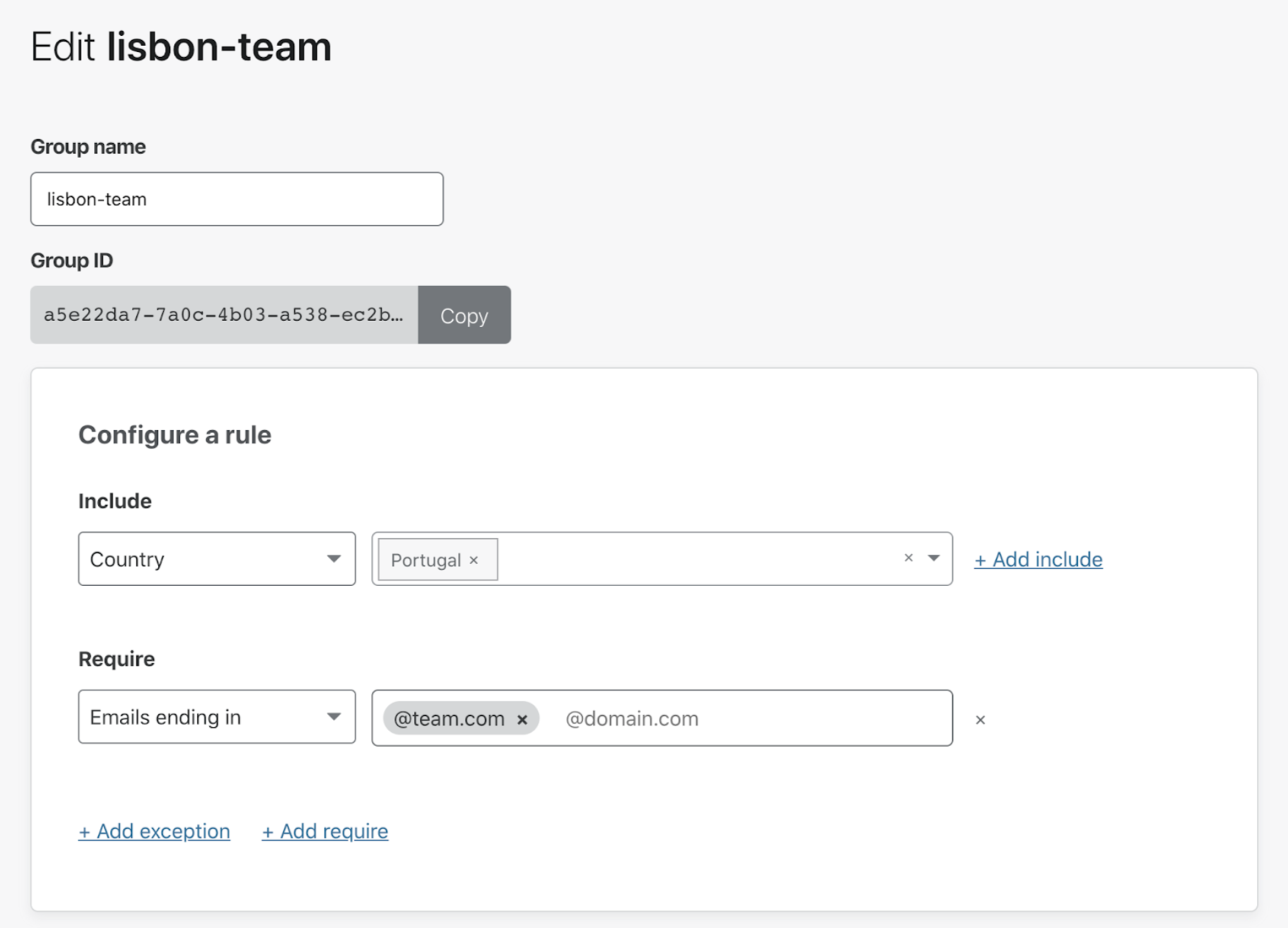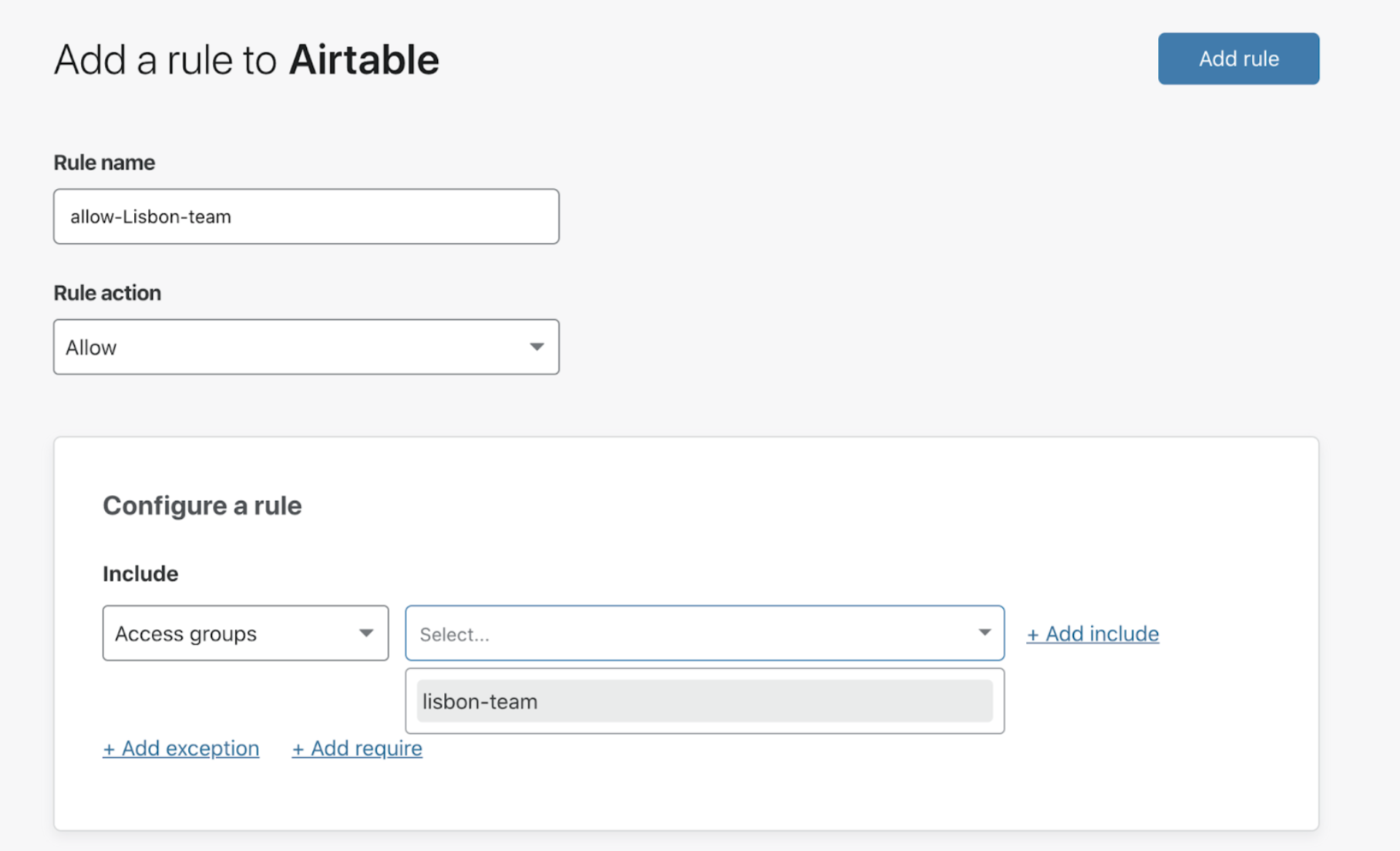Access groups
Definition
A group is a set of rules that can be configured once and then quickly applied across many Access applications. You can select a group as a selector in any Zero Trust policy, and all the criteria from the selected group will apply to that application.
Example scenario
Imagine you want to grant access to your applications to your team based in Lisbon, Portugal. In order to avoid building the same set of rules over and over across your applications, you can create a group called lisbon-team, which comprises:
- an Include rule granting access to everyone in Portugal, and
- a Require rule restricting access to users whose email ends in
@team.com.

Once the group is set up, you can use it to configure rules within your applications as follows:

Create a group
To create and manage groups:
- In Zero Trust, navigate to the Access section.
- Open the Access Groups tab.
- Click Add a Group.
- Enter a name for the group.
- Specify as many rules as needed to define your user group.
- Click Save.
Group criteria
Group criteria determine whether or not a user is a member of a particular group. Since groups are simply a collection of Access rules, they use the same rule types and selectors shown in the Access policy builder.
Using groups for IP-based rules
We recommend using groups to define any IP address-based rules you configure in policies. Keeping IP addresses in one place allows you to modify or remove addresses once, rather than in each policy, and reduces the potential for mistakes.
Using groups for country requirements
You can create an Access Group that consists of countries to allow or block. The Access Group will treat the countries in the Include policy with an OR operator. You can use this Access Group inside of a Require rule to require at least one of the countries inside of the group.